Support making RiG more international!
Click here to start the surveySupport making "Research in Germany" more international! Your expertise and commitment are the key to the further development of promoting the German research landscape. We invite you to take part in our online survey and share your valuable experiences and opinions. Duration: 7-10 min.
Please start the survey at the end of your visit.
Academies of sciences and humanities
Academies are associations of renowned individuals from the worlds of scholarship and the arts.
The academies in Germany help politicians and the public find answers to current questions and problems. The provided analysis is based on outstanding specialist knowledge. In addition, a key mission of the academies is to coordinate and support long-term foundational research projects and to develop and cultivate interdisciplinary dialogues. They organise symposia and public events, with which they make a valuable and research-based contribution to the dialogue between research, society and the economy, and thus enhance the German research landscape.
The Leopoldina is the German National Academy of Sciences and unites researchers with outstanding expertise in almost all fields of research. Yet there are many other academies in Germany, too. They include the Union of the German Academies of Sciences and Humanities, which is an association of eight state academies. Then there is the National Academy of Science and Engineering, acatech, which represents the technical sciences at home and abroad. And since the beginning of the new millennium Die Junge Akademie has represented new scholarly talent.
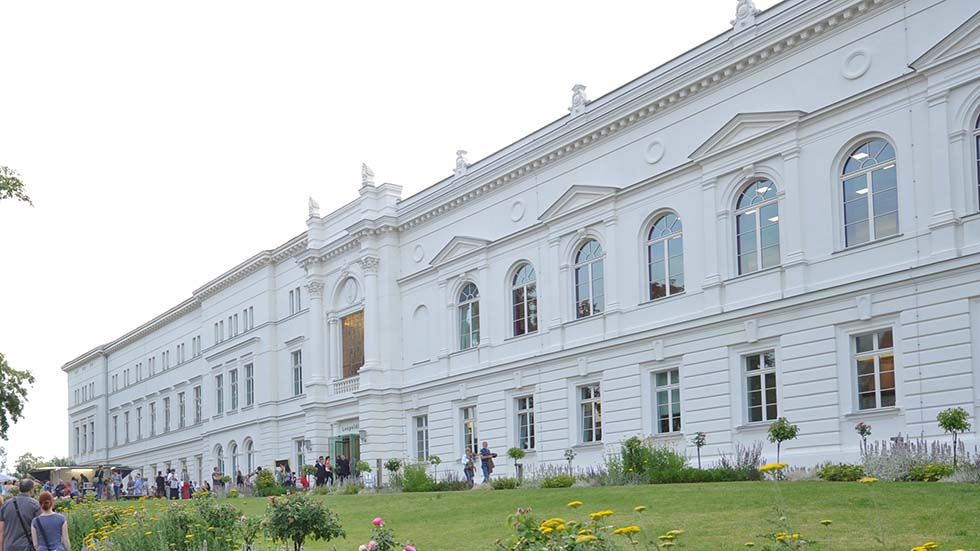
Leopoldina – German National Academy of Sciences
Being the German National Academy of Sciences, the Leopoldina provides independent science-based policy advice on matters relevant to society.
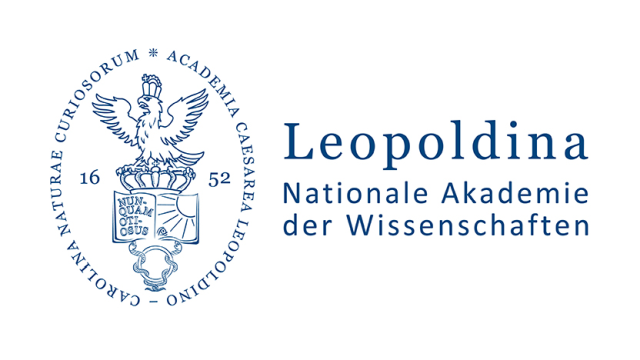
To this end, the Academy develops interdisciplinary statements based on scientific findings. In these publications, options for action are outlined; making decisions, however, is the responsibility of democratically legitimised politicians. The experts who prepare the statements work in a voluntary and unbiased manner.
The Leopoldina represents the German scientific community in the international academy dialogue. This includes advising the annual summits of heads of state and government of the G7 and G20 countries. The Leopoldina cooperates with several scientific and research institutions in Germany and abroad. With 1,600 members from more than 30 countries, the Leopoldina combines expertise from almost all research areas.
Founded in 1652, it was appointed the National Academy of Sciences of Germany in 2008. The Leopoldina is committed to the common good.
Facts and figures
Approx. 1,600 members from over 30 countries
189 members have been awarded a Nobel prize
More than 130 staff
Close relations with science academies on all continents
Annual budget: approx. 15.1 million euros (2023)
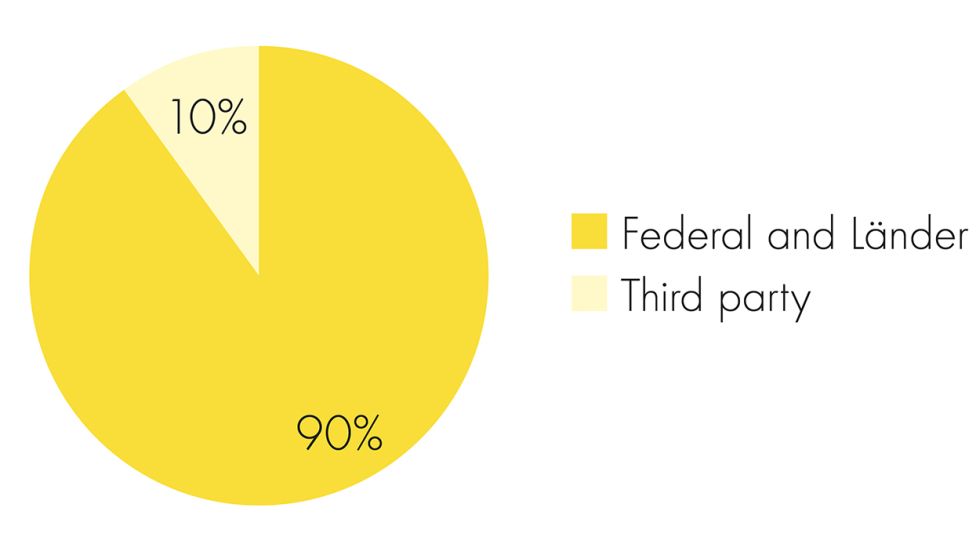
Budget
The annual budget of the Leopoldina totals over 15.1 million euros. This consists of basic funding from the Federal Government and the State of Saxony-Anhalt amounting to 13.8 million euros, which includes the budgets of the Young Academy and the Global Young Academy of almost 1.6 million euros. In addition, a total of 1.3 million euros of third-party funding was allocated to the Leopoldina's budget (2023).
More information:
acatech – National Academy of Science and Engineering
acatech, the National Academy of Science and Engineering was founded in 2002. It represents the interests of the German scientific and technological communities at home and abroad. It is an autonomous, independent and non-profit organisation.
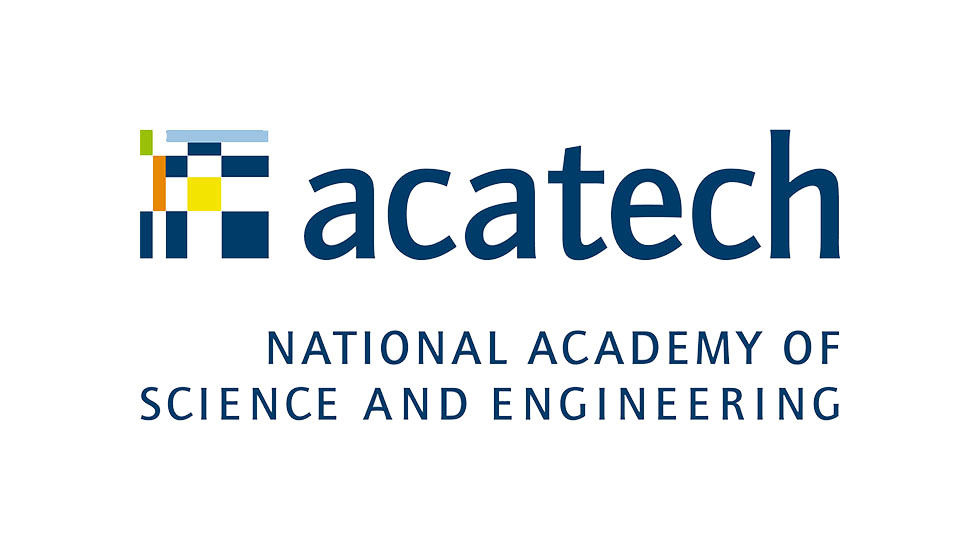
As a working academy, acatech supports policymakers and society, providing qualified technical evaluations and forward-looking recommendations. Moreover, acatech is determined to promote research, support knowledge transfer between science and industry and to encourage the next generation of engineers in Germany.
The German academy acatech works to promote sustainable growth through innovation. Its work focuses on four core areas:
- Scientific recommendations: acatech advises policymakers and the public on future technology issues based on state-of-the-art research
- Transfer of expertise: acatech provides a platform for exchanging excellence between the sciences and business
- Promotion of young researchers: acatech is involved in supporting young scientists and engineers
- A voice for science and engineering: acatech represents the interests of scientists and engineers at the national and international levels
Facts and figures
630 members
Approx. 220 staff
Roughly 170 research projects since its foundation, collaboration with research institutions and companies
Annual budget: approx. 23.3 million euros (2022)
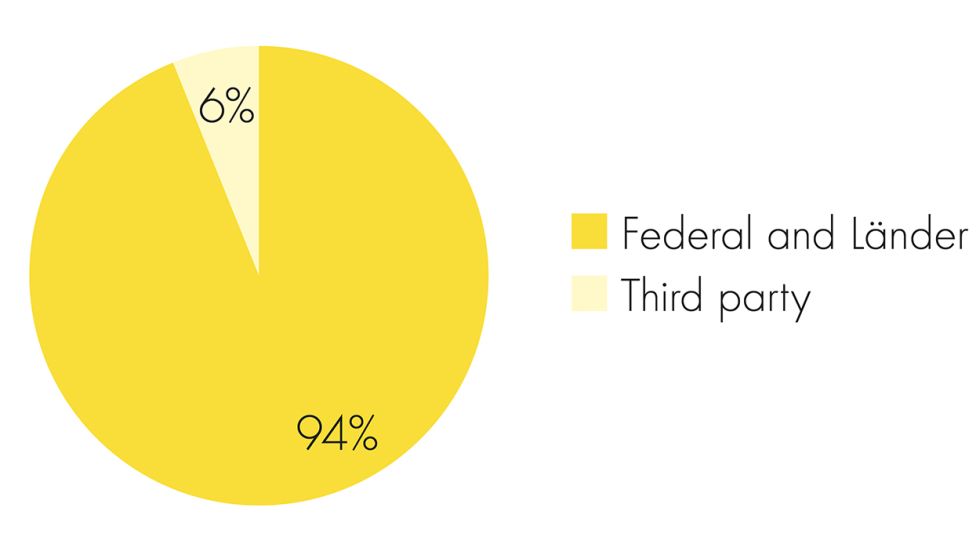
Budget
The annual budget totals over 23.3 million euros, including basic funding of 3.8 million euros from the Federal Government and the German states (Länder), 14.6 million euros of public-sector project funding, 3.5 million euros from the EU and 1.4 million euros of private-sector project funding (2022).
More information:
Die Junge Akademie
Die Junge Akademie, founded in 2000 by the German National Academy of Sciences Leopoldina and the Berlin-Brandenburg Academy of Sciences and Humanities, is the world’s first academy for outstanding young academics. Its members hail from all scientific disciplines and the arts. They explore the potential and limits of interdisciplinary work and aim to start conversations between science, art and society, and to generate momentum in discussions on science policy. Since its founding, Die Junge Akademie has developed into a role model and example for similar initiatives in many other countries.
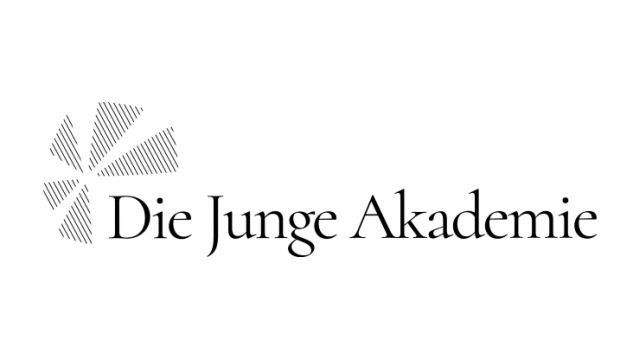
Die Junge Akademie has prioritised the following two tasks: encouraging academic, especially interdisciplinary, discourse among outstanding young academics as well as promoting initiatives at the intersection of science, art, science management, science policy and society.
Facts and figures
50 members, access to a personal budget as well as to a joint research budget
5-year membership
More than 50 research groups since its foundation
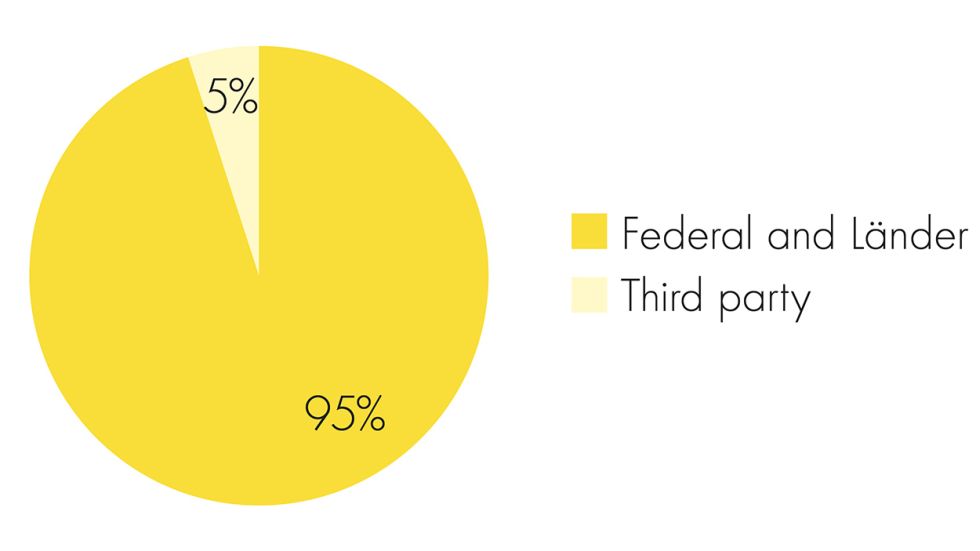
Budget
90 per cent of the Junge Akademie’s budget is funded by the Federal Ministry of Education and Research (BMBF) with the State of Saxony-Anhalt and the Berlin-Brandenburg Academy of Sciences and Humanities each contributing a further 5 per cent.
More information:
Union of the German Academies of Sciences and Humanities
The Union of the German Academies of Sciences and Humanities is the umbrella organisation of eight German academies of sciences based in Berlin, Düsseldorf, Göttingen, Hamburg, Heidelberg, Leipzig, Mainz and Munich. The Union’s main tasks are to represent and enhance the profile of its member academies at home and abroad, and to coordinate the Academies’ Programme. The member academies of the Union have elected more than 2,000 scientists and scholars from a wide range of disciplines as ordinary, corresponding and extraordinary members.
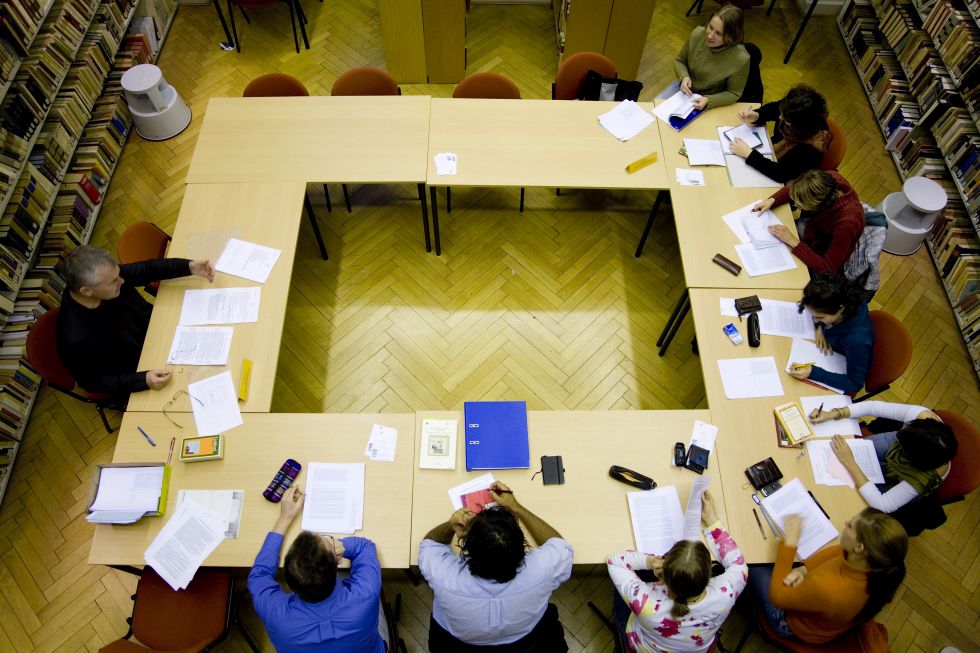
The eight members of the Union of Academies are:
- Berlin-Brandenburg Academy of Sciences and Humanities (est. 1992/1700)
- Göttingen Academy of Sciences and Humanities in Lower Saxony (est. 1751)
- Bavarian Academy of Sciences and Humanities (est. 1759)
- Saxon Academy of Sciences and Humanities in Leipzig (est. 1846)
- Heidelberg Academy of Sciences and Humanities (est. 1909)
- Academy of Sciences and Literature, Mainz (est. 1949)
- North Rhine-Westphalian Academy of Sciences, Humanities and the Arts (1970) (only in German)
- Academy of Sciences and Humanities in Hamburg (2004)
The Academies’ Programme
The Academies’ Programme (Akademienprogramm) is coordinated by the Union of the German Academies of Sciences and Humanities.
It is currently Germany’s most comprehensive long-term research programme in the humanities and social sciences, bringing together research projects of the academies under one umbrella.
At present it involves 125 projects with more than 188 working groups. The projects include dictionaries and editions in the humanities, long-term studies at the interface between the natural sciences and humanities as well as foundational research projects in social sciences and cultural studies.
Once a year the academies affiliated in the Union organise the so-called Academies’ Day, where they present their research to the public at large.
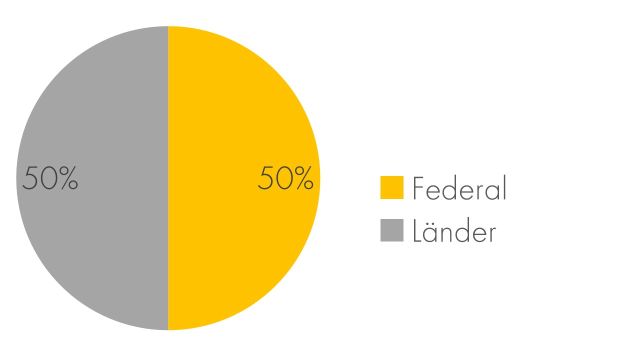
Research budget of the Academies’ Programme
The Union of Academies is institutionally funded by the member academies’ home states and proportionately by the Academies’ Programme. The Union administers the Academies’ Programme, which is funded equally by the German states (Länder) and the Federal Government with a total budget of 75.0 million euros (2024).
Prizes awarded by the academies
The members of the Union of the German Academies of Sciences and Humanities award numerous prizes, medals and scholarships. They support young researchers and acknowledge special research accomplishments or a person’s outstanding life’s work.
Academies of sciences and humanities in Germany honour junior researchers with prizes and medals and award scholarships. Such support can involve funding for a research project or a personal prize. These research prizes constitute a special honour for the award-winner quite apart from any prize money involved. A personal application is usually not possible. The individual academies provide information about the respective procedures.
Here are some examples of prizes awarded by academies (there are also additional prizes linked with specific subject areas or research locations):
- The Göttingen Academy of Sciences and Humanities awards the Nachwuchspreis der Mathematisch-Naturwissenschaftlichen Klasse (only in German) for outstanding academic work
- Every other year, the Bavarian Academy of Sciences and Humanities presents the Karl-Heinz Hoffmann-Preis (only in German) to honour the research work done by early career researchers in the sciences and humanities. The prize is endowed with 10,000 euros
- The Engineering Science Prize of the Berlin-Brandenburg Academy of Sciences and Humanities is awarded for outstanding achievements in the engineering sciences by young engineers and scientists in research or industry. Winners receive 10,000 euros in prize money
- The Akademiepreis (only in German) of the Heidelberger Academy of Sciences and Humanities is endowed with 10,000 euros and is awarded to early career researchers for academic work. On an alternating basis, the prize is presented each year by either the mathematics/natural sciences class or by the philosophical/historical class
- The North Rhine-Westphalian Academy of Sciences, Humanities and the Arts awards the Karl Arnold Preis (only in German) to young scientists, musicians and artists. The prize is endowed with 10,000 euros
Academies honour established scholars for their lifetime achievement. Personal application is usually not possible. Academies award prizes for outstanding research work in the most varied subject areas.
Here are some examples of prizes and awards for established scholars:
- The Berlin-Brandenburg Academy of Sciences and Humanities awards the Academy Prize for outstanding achievements in any disciplinary field. The award includes prize money of 50,000 euros and may be awarded biennially
- The Gauss Professorship (only in German) of the Göttingen Academy of Sciences and Humanities in Lower Saxony enables outstanding scholars from outside Germany – primarily astronomers, geophysicists, mathematicians and physicists – to complete a research stay in Göttingen
- The Academy of Sciences and Literature in Mainz awards the annual Joseph Breitbach Prize, which is endowed with 50,000 euros, for German-language writing in all literary genres
- Every other year, the Academy of Sciences and Humanities in Hamburg confers the Hamburg Science Prize, which is generously endowed with 100,000 euros. Rather than paying tribute to an academic’s lifetime achievement, the prize honours research of proven quality that is still in progress
More information:
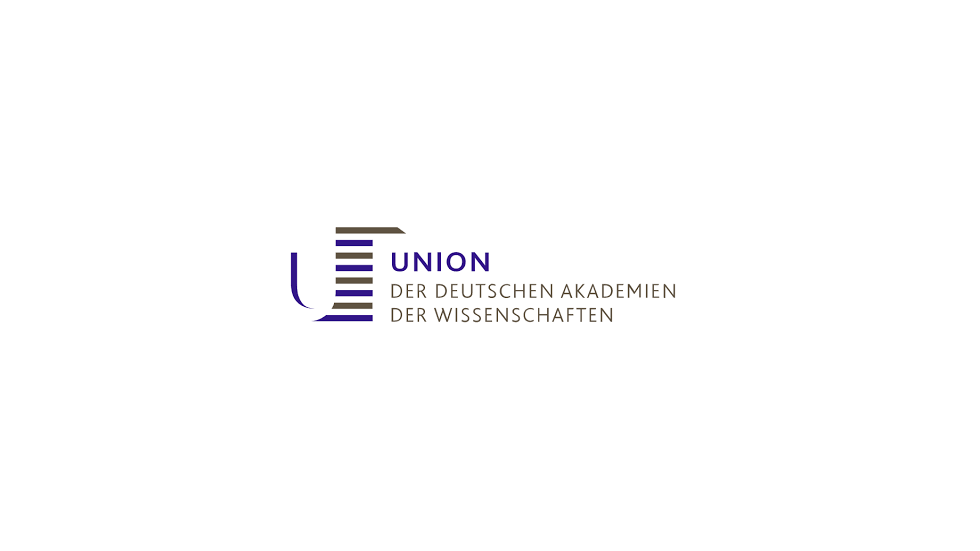
Union der deutschen Akademien der Wissenschaften
Main Office
- Geschwister-Scholl-Straße 2
- 55131 Mainz

Union der deutschen Akademien der Wissenschaften
Berlin Office
- Jägerstraße 22/23
- 10117 Berlin